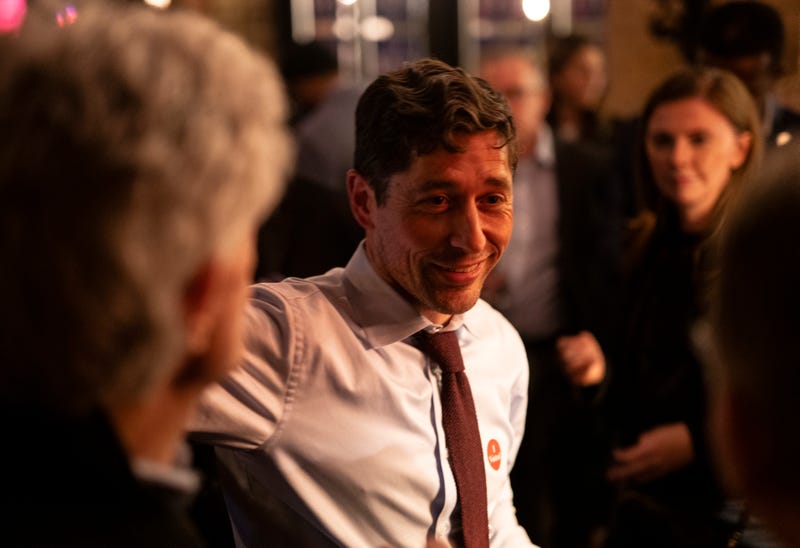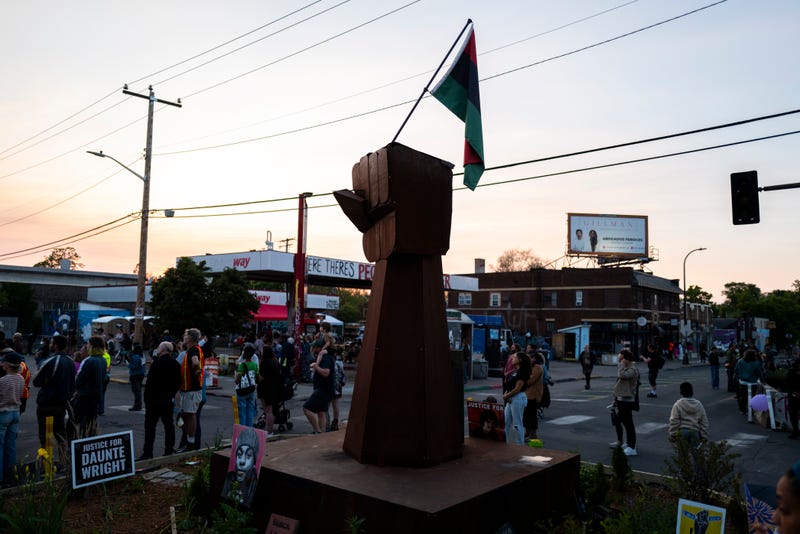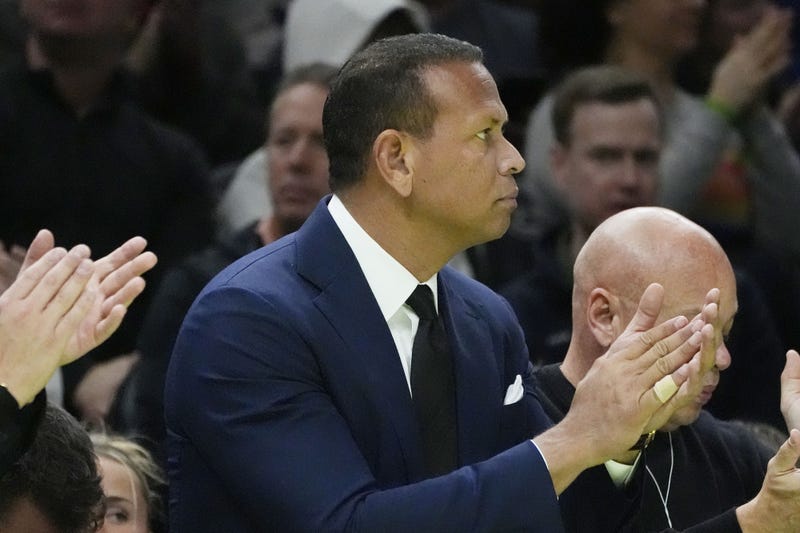
Just elected to a third straight term as Minneapolis' Mayor, Jacob Frey will enter the next four years in office in 2026 and he'll do so after a difficult stretch for the city, struggles between the mayor's office and the city council, and a seemingly endless call for more public safety, and more police officers.
Through all of it, Frey coasted to another election victory despite serious challenges from the more socialist aspects in the city. He'll face a city council with just enough turnover to make it appear more friendly towards his policies too.
In a wide-ranging interview with WCCO's Chad Hartman Show on Thursday, Frey talked about his plans for the city and his next term, and much more.
Hartman: What was your gut-feeling going into this last election compared to 2017 and 2021?
Frey: Obviously there were substantial differences just based on the time between 2021 and 2025. I mean, the city was really going through it in 2021. We were still very much in a global pandemic. We were coming off of a litany of difficult circumstances that occurred in 2020. And so, you know, elections are always brutal, but in 2021 there was a whole other nerve associated with it entirely.
In the days leading up to the election, look, we were cautiously optimistic, you know. You never want to get too ahead of yourself, but we had built a coalition that we had never seen before, certainly during my time. We had a beautifully diverse support throughout the entire city and what we saw on election day, of course, was record breaking turnout. We saw the city's shared commitment to work together in unity and for the city that we love, and I'm really humbled and grateful to receive the support and trust of the people of Minneapolis.
And my promise and my pledge is, I'm gonna work my ass off for four years until the final seconds of this term, to do everything that we can to make sure that Minneapolis realizes every bit of potential.
Hartman: Tell me two or three things that need to happen, that you need to be in play and to see some level of success for you to feel in four years that in those areas, you feel like those were significant accomplishments.
Frey: There's obviously the overarching goals, and you know what those are. Those largely don't change for any mayor because a lot of the same goals were there when Hubert Humphrey is there, and they're the same goals for me. It's housing, it's safety, it's economic development, it's making sure that the city runs well, it's all that.
But to get more specific, we need to hire more police officers. We need to build more housing at all levels, both market rate and affordable. We're looking to see a full-on downtown transformation, how we revitalize an entertainment district. And then there are economic development projects like Upper Harbor Terminal that we've got to complete and finish off, like Nicollet and Kmart. We're reopening the street there, like George Floyd Square, which, good Lord, needs action. And so we're going to be moving on all of those items.
And I'll tell you there's one more that doesn't go on the campaign list, but it's really critical to the city. We want to solidify the government structure change, that while it has occurred technically in many instances, there's still a lot of practical areas where you need a culture shift to make sure that I can hand the reins off to the next mayor with the city in a place where they can really run a government. And that again, that is a huge thing that I could talk about for an hour and a half. Probably very few people will care, but 20 and 30 years from now, people will feel the difference in the service that the city's able to provide because of some of the listing that we've done.

Hartman: George Floyd Square. To me, it's absurd and it's insulting that this issue has not been resolved yet. I get that there are stark differences between you and people on your side, and others on the council. Why should somebody believe in the next couple of years, if not this year, that George Floyd Square, a plan which might not have 100% unison because no plan has 100% unison, but something substantial will be built, open, and a part of the community at George Floyd Square?
Frey: You and I are in full agreement, Chad. This is absurd. The time for delay is over. We have been trying to get something done and approved through the council for years. And simply put, the thing that the council members have pushed to do, they can't do because of the law. It's not just the community that is against this, putting a cul-de-sac in the middle of Chicago Avenue and permanently shutting Chicago off to traffic. It's that to do that, they can't have more than 50% of the business/property owners opposing the plan to shut down the street. And right now 100% of the businesses and property owners we're aware of oppose that plan.
At some point in the next several months or the next year or whatever, the council members will realize that the thing that they've been trying to do they can't do. And I mean, the only difference is we're just telling the truth from the very beginning, you know. Unless something changes substantially, which, I mean that could happen. The route that makes the most sense is an open, flexible option where you can close the street down and have events and parties and festivals and healing sessions and all the rest. And you can have access to the small local businesses, you can get emergency vehicles through, etc. That makes the most sense. That's the direction I believe we should go.
And by the way, we're going to be moving forward also with that the People's Way gas station that's there. There's a gas station that's over there where we're going to ultimately have some form of legacy for George Floyd, a museum, it could be a museum, it could be an open space, it could be something special, and we're going to make sure it's done really well. And so yes, that's part of it.
Hartman: So let's pick up the dynamic with the city council. There's a change. They don't have the automatic override on your vetoes now. Since election night, have you gathered with anyone? Have you spoken with anyone in the city council? And what is your belief about understanding there will be strong differences, but getting more things done and the potential where it's not as adversarial as it was this past session?
Frey: Well, that's exactly what we need to be striving for. I will work in good faith with anybody that's willing to work in good faith with me, and I think it's incumbent on all of us to find ways to see common ground rather than fault lines. It's necessary for all of us to work together because, by the way, our constituents expect it.
And at the same time, I'm not going to abdicate my responsibility to do the right thing for the City of Minneapolis. I was elected by everybody in the City of Minneapolis, not one interest group, not one ward, but everybody. And I have a deep responsibility there that I take very seriously when I sign that election certificate. And so yeah, there has been a changed dynamic in that they no longer have a veto-proof majority where they don't need to consult with the mayor. I mean, they didn't need to previously because they had the votes just to override. Now they don't have those votes, but you know, bottom line is, regardless of where the votes are at, we got to work together. We've got to collaborate. We've got to find common ground. There's a hell of a lot of common ground to find.
And so, you know, let's do right in Minneapolis what the federal government is not able to get right. Let's have a special place here where we are in fact working together, and I'm optimistic. You've got to start every term, every term out with a hop in your step and a sense of optimism and a hope that everybody is loving their city more than their ideology, and that's my hope that'll be the case here.
Hartman: What is the likelihood that during this next term, something you want, something you believe in, and you alluded to it earlier, that the buses will be removed from Nicollet Mall?
Frey: I think it's a good idea. Look, we can't keep doing the same thing and expect there to be a change, and in the core of downtown, we need to do some things - plural- differently. You look at areas of the larger downtown that are successful, wildly successful, like North Loop. And they have activity. They've got retail, they've got small locally-owned businesses. They've got a diversity of use. It's not just a bunch of people coming into work at, you know, 8:00 a.m. and leaving at 5:30 p.m. They've got action going on. We need to put that on Nicollet Mall.
And yeah, I also think it makes sense to get the buses off, you can move them over one block. It would actually speed up the times for transit. You could move them over to Marquette in a second. And you could open Nicollet Mall for an array of activities, including things like what we just saw a couple months ago, which was Dinner du Nord where we had thousands of people all eating dinner together, getting food cooked by some of the best chefs in the world, all these local chefs right there on the street.
And so, yeah, I think there's some big opportunity there, not to mention, you know, there's also the potential for an arena somewhere in the vicinity. And when you combine all of those things together, you can get some big transformation of downtown, the core of it, a revitalization of an entertainment district, and I think really making sure we're realizing potential.
Hartman: Let's talk about the arena. It seems like the Wolves are formulating more of a plan, and I think it's clear in an ideal world, they'd love to stay in downtown Minneapolis. In an ideal world, you'd like them to stay in downtown Minneapolis. Do you feel better about certain locations? What role do you want the city to play in keeping the Wolves downtown? And does that in any way include any beneficial, whether it's tax increment financing, or anything that lessens the financial money, just the money that the Wolves will have to pay for this arena?
Frey: Well, I'm very biased in this, but I also happen to be right. There's no better place for the Lynx and the Timberwolves to play than downtown Minneapolis. I mean, going back to the time of the Lakers, they were in downtown Minneapolis. There is a unique and very close relationship between our city, our downtown, and these incredible basketball teams, and we want to keep it that way. Now, not to mention, the infrastructure that is surrounding, whether that's the light rail or the entertainment options, the bars, the restaurants, the density of population, just the excitement, you're not going to get that anywhere else, period. And I'm going to be, you know, very intentionally making the case that this is the best spot for it. I'm optimistic that pretty much everybody agrees with me. Of course there will be some people that disagree, but like I think it's obvious, and so, yeah, I think there's a number of sites. I'm not going to start naming them off right now because as soon as you name them off, then you have an impact on the valuation and the price, and I don't want to go down that route yet.
But I mean, look, what I will say is that we have an opportunity to take that warehouse district and revitalize it in a big way. We have an opportunity to activate Nicollet Mall, which could be, as I've said, pedestrian. We have a beautiful symbiosis that could take place between a sports arena and the whole theater district. And if you take all of those things and you get all the right players working together. We have a huge opportunity that I know we can take advantage of.

Hartman: Will the city play any role financially?
Frey: So as I've said before, and the same is the position now, I don't support the city subsidy going to an arena. Now that being said, we'll definitely partner with the Lynx and the Wolves. We'll definitely partner with them. We'll work together. They should have a great arena to play in, obviously, and they should have a great city to work with to make sure that they are successes. Their success can be our success. And so, yeah, we're gonna be partnering extensively.
Hartman: Minneapolis Police Chief Brian O'Hara's contract is up next year. Do you want him back? Have you talked to him about it?
Frey: No, so we haven't had conversations or sit down with department heads at this point, but my position hasn't changed. Chief O'Hara has my 100% support. He's done a great job leading a department and a profession that is not an easy one, and, you know, making sure that we're rebuilding back the police department, which is happening. Making sure that we're driving down crime, which is taking place. Making sure that we're doing all the important work around reform. No, the Chief's got my support.
Hartman: When this term finishes in 2029, realistically, how many more police officers can you add?
Frey: The number we've been putting out, I mean, it's as many as possible. Obviously, you know, we will be doing the very hard work of recruiting people that we want in our police department, that want to be the change, that want to keep people safe and protect them, and that are courageous. You know, the number we've been saying is 150. We need 150 more, but like, we need more than 150 also. So I can't give you an exact number as to how many we're going to net positive.
Hartman: Is that realistic? Is 150 more realistic by 2029?
Frey: I believe it is. I believe it is. Of course there's a ton of things that can happen between now and then. I mean, yeah, you know, I'd like to go up well above 150. I think we need to make - we need to do the work to get back to 888, which is where we used to be, pre-2020. We need to have these officers because people expect a level of service, and when they don't have enough officers, then it's easier for things to fall through the cracks, the level of service suffers, the response time goes up, and whereas we want it to be going down. And so there's a, you know, there's a lot of work to be done and we are making some great progress. We are netting substantially positive applications to become an officer are up, I think, 135% right now. The Minneapolis Police Department is the most diverse department it's ever been in the city's history, and so good progress has taken place. A hell of a lot more progress needs to happen.
